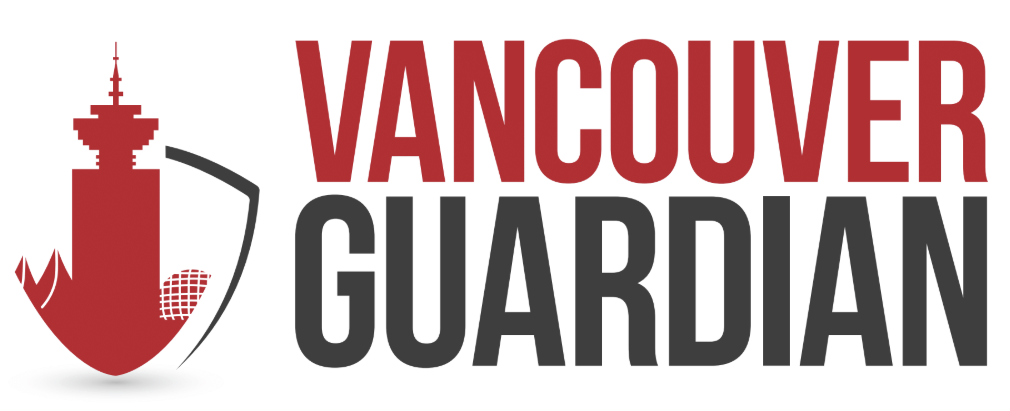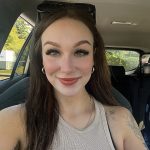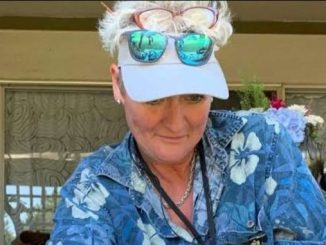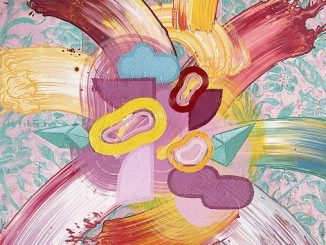Jess Lupini is a multi-talented creative professional based in Vancouver. She is a director and producer known for her work in science fiction and documentaries. One of her notable projects includes a documentary about a new cancer treatment titled “The Rarest Drug on Earth.” She has also gained recognition for her narrative short film “Day 34,” which won awards at the Run n’ Gun Film Competition, among others. Jess co-owns Avocado Video, a production company specializing in explaining complex concepts through film. Additionally, Jess is a passionate advocate for queer representation in science and education, and we had the opportunity to discuss her new podcast on the subject of our relationship between our voices and gender.

What is your channel called and what is it about?
If I can be vulnerable for a moment, I need to admit something. When I first saw this list of questions, I had a moment of profound anxiety, which hadn’t yet fully left my body. As I read through questions about my audience, my channel, monetization, and how people can follow me, I realized something: I don’t have a channel, I have Projects. I capitalize the ‘P’ because a Project (unlike its younger, naïeve sister: the lowercase-p-project) isn’t just a thing I’m working on. It’s also a facade — a curtain behind which I can hide, popping out for a moment to accept any kind words, but also providing cover for me to slink off into the night should things get too difficult, too personal, or too critical. Sometimes, one of the strangest things about being trans is realizing the odd, butterfly-effect ways that undiagnosed dysphoria permeates our lives. I’m beginning to suspect my duelling desires to create vulnerable art while also somehow avoiding any vulnerability may have been one of those side effects. The pandemic gave me the space to step back from life, and eventually realize I was trans. But as someone who’s been on the internet long enough to have had a MySpace, but never really maintained a presence or audience, I find myself in a strange position now: On the precipice of a new Project, but with the decades of my internet footprints showing the signs of time — washing away like tracks in the beach sand. Gone are the silly Geocities sites. Gone are the overwrought MySpaces and the twee Facebook albums. My Twitter died with the little blue bird, and my shitposting days with it. My TikTok account remains dormant, nodding along with the tags from friends in whose videos I appear, but never venture far enough beyond the curtain to show the way to the real me.
So where does that leave me? These days, I’m most active on Instagram, but if you’re interested in my Projects, you can check out my professional work with Avo Media, watch me play D&D with BlackwaterDnD, listen to my science-and-comedy podcast Science Telephone, feast your ears on my music, or watch a sci-fi short film I directed.
But the main thing I’m hoping to talk about is a new podcast. And yes, I know that everyone has a podcast these days, to the point where it’s the punchline of far too many jokes. But I think the reason everyone has a podcast is that of all the ways human beings express ourselves, our voices are simply one of the most versatile tools for the job. And that brings me to my latest Project: The Words Don’t Fit the Picture. It’s a podcast about about the strange, tangled relationship between gender and voice.
When I came out as trans, I knew it’d be a long, difficult road. But I didn’t expect that one of the toughest parts of transitioning would be my voice. Finding size 14 shoes? Tricky at first, but surprisingly easy once you know where to look. Talking to a customer service rep on the phone without getting called “Sir”? A different story entirely. Testosterone is the only hormone that changes your voice, and it only goes one direction. Some people opt to change how they sound through voice training or surgeries, and plenty of trans and nonbinary people don’t change their voices at all. There’s no right way to do things, but there are many things I wish I knew at the outset of my journey. In fact, there’s a lot I still don’t know — a lot of questions I still don’t have answers to. It’s why I decided to make this podcast. If I’m going to figure out all this stuff anyway, I may as well do it in a way where I can help out the many others on similar journeys.
When did you start it? What motivated you at the beginning?
In some ways, I’ve been working on it since I was a little kid. In the 90s, my father worked as an engineer at a company that made karaoke machines, developing some of the earliest modern voice-modulation tools available as consumer products. I’d help him with ‘beta testing’, which was mostly dancing around our living room singing ABBA and barely avoiding the tripping hazard of the RCA cord connecting the microphone to the TV. When I was 10 years old, the company he worked for released a groundbreaking new version of the product that not only could correct your pitch, but also boasted several voice modulation settings including an alien, a robot, and two ‘gender change’ modes. I spent hours singing into that thing, and it was the first time I really started to think about the difference between voices we tend to think of as ‘male’ and ‘female’. My voice hadn’t dropped yet at that point, but it’s funny to look back on it now, and know that it wasn’t a coincidence how much time I spent awestruck at how something I had always just taken for granted — my voice — could be made mutable.
And here I am, twenty years later, learning about voice training and playing with state-of-the-art voice modulation tools that feel light-years ahead of the ‘gender swap’ mode on that old microphone, but still can’t quite get it right.
Who were you inspired by? Any influences?
When it comes to this project, I’m drawing influence from two different directions.
On one side are the podcasts that have stayed with me over the years — blending personality with learning and beautiful storytelling. Shows like Radiolab, Reply All, S-Town, Heavyweight, and This American Life. I’ll never forget sitting in bed crying as I listened to episode 3 of S-Town — finding myself learning more about the inner workings of clocks, hedge mazes, and one eccentric, beautiful man living in shit-town Alabama than I ever could have imagined. Or the joy creeping across my face at the end of Reply All’s seminal “The Case of the Missing Hit”.
But on the other side are the trans women whose content I watched as I struggled with my identity, and eventually came to terms with it. Those who paved the way for people like me to be able to exist in society just a little bit more easily than they did — creators like Contrapoints, Philosophy Tube, Jessie Gender, and so many others. They’re such incredible communicators and teachers, while still managing to be funny and inspiring at the same time. I stan.
How would you describe your audience?
Curious. Curiosity has driven everything I’ve ever done. I love the feeling of learning and then teaching — seeking out new knowledge, find it, then reflecting it back at those who are still seeking. New experiences light my fire, and there’s no better feeling than discovery. The folks who are most engaged by the things I make tend to be the same.
What is your creative process? Do you have people who work with you?
I’ve worked on a lot of different projects at this point, with many people, in many ways. What I’ve found is that the best results tend to come from a really strong idea, guided by the idea-haver, but worked on by a team of people who really believe in it (the ‘idea-believers’, if you will). I love working with people who are amazing at what they do. One of my favourite things in the world is watching somebody work and thinking to myself “Damn, there’s no way I could ever do that thing as well as they are”. Thankfully I get to work with people like that every day.
How do you monetize your content? Do you also have another job?
I’m lucky enough to get to make cool stuff full-time. I’m the co-founder of Avo Media — a Vancouver-based creative agency with a focus on science communication. We make explainers, podcasts, documentaries, and a whole lot more. We’re a small team, and it’s honestly a dream job. Making content for a living — but not specifically content about myself — is a great way to keep myself in fighting shape without burning out on content creation.
That said, it’s often hard to justify spending time working on ‘side projects’ when your full-time job is to make content for other people. That’s why I was so excited to receive the Storyhive Video Podcast grant for this podcast — it means I can actually pay myself and my team for our time, and make sure this thing is as good as it can possibly be. Those grants are like solid gold to emerging creators. Unlike most of the grants out there with incredibly onerous application processes, all you really need for Storyhive is a good pitch, and I guess I had a good pitch!
What is your favourite piece of content you have created?
I am deeply tempted to betray the spirit of this question by sharing more than one, but I’m going to control myself (to make up for how long my first answer was). A few years ago — coincidentally as part of another Storyhive grant — I worked on a short documentary about a groundbreaking new cancer treatment and the incredibly rare radioactive ingredient it requires. It’s called ‘The Rarest Drug on Earth’, and I still think it’s some of the best storytelling about a complicated topic that I’ve ever been a part of. I hope to recapture some of that narrative magic with this project.
What is the best part about what you do? What is the worst part?
The best part about what I do is that it’s always changing, and there’s always something new to learn. One month I’m deep-diving into telomere research, and the next I’m tracking down comedians who are willing to make jokes about bumblebee fornication. I’ve flown a drone so close to a particle accelerator that it was nearly lost to electromagnetic interference and interviewed scientists on the front lines of COVID research in the first few terrifying weeks of the North American lockdown. There’s never a dull moment.
But the flip side of that coin is that I’m constantly finding myself in uncharted waters searching for signs of land. Running a business can be challenging, and stressful in ways that I didn’t really think about back when we first opened shop. It’s not easy, and the late nights can get to you. I’m experiencing one of them now, in fact. My apartment flooded last night due to an upstairs neighbour’s malfunctioning toilet, and I’m writing this on no sleep, sitting in a damp, stinky apartment with buckets collecting residual drips from the ceiling. But deadlines are deadlines, so no rest until I’m done.
What are your future plans for your channel?
The first season of The Words Don’t Fit The Picture will feature interviews with sociolinguistics experts, voice coaches, speech-language pathologists, surgeons, influencers, singers, and a host of others. If it clicks with people, my hope is to eventually make a feature-length documentary on the topic where I can really deep-dive into the relationship between voice and identity.
Where can we follow you?
My Instagram is the best place to follow what I’m up to, and you can also watch me play D&D on Twitch or YouTube.
PAY IT FORWARD: Who is another Canadian content creator that you love?
There are too many to count, but I’ll give a shout out to Alistair Ogden, one of my favourite Canadian comics, and Lauren Sundstrom, who makes lifestyle content creation look so easy (even though I know it’s not!) while also advocating for trans rights every step of the way.




